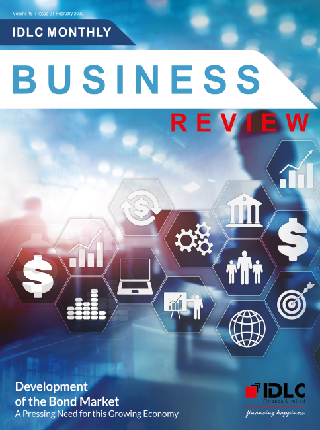FROM FITBITS TO ROKUS, HEDGE FUNDS MINE DATA FOR CONSUMER HABITS
A Bloomberg.com article by Hema Parmar on how hedge funds collect data about consumer habits.
Data is fast becoming the new frontier whether it comes from Fitbits, Rokus and Teslas or employment websites like Glassdoor.com when it comes to the attainment of that elusive trading edge.
“There is not one major hedge fund or asset manager that doesn’t have data initiatives underway or that are not using alternative data in some way,” said Michael Marrale, chief executive officer of M Science, a firm that provides data and analytics to hedge funds.
A JPMorgan Chase & Co. report said, spotting trends and patterns in consumer habits is a big business, part of a global market for big data, and could reach more than $200 billion by next year. But there is still no assurance that all these information will lead to resources. Polishing, shaping and accumulation is required to make it useful.
Here’s some data that funds are watching.
- WiFi and Bluetooth-Enabled Devices
WiFi and Bluetooth connections are often taken for granted as they have become so global at present. But these devices which are connected to the internet are strongly tracked by hedge funds. They can show “when and where new things appear in the world,” said Hugh O’Connor, director of data sourcing and partnerships at Eagle Alpha, which collects data for the finance industry. Firms can keep track of length of time and approximate locations using Roku video streaming devices or Fitbit fitness trackers. Similarly, if you buy a Tesla Model 3 car and use its Bluetooth-enabled media, a data provider can capture when your new ride is hitting the road.
- Location Tracking
The number of people carrying devices at a particular location can be known by data removed from mobile phone in real time. This can give information about how many people are visiting a retailer, supermarket or fast-food joint. Firms can also monitor app downloads and their popularity.
- Web Scraping
To scrape the biggest warehouse of information, the internet hedge funds have set up internal units. They’re sieving sites to create modified collections of public data. Examples include pricing trends on airline flights or hotels, inventory figures for products offered on coupon website Groupon, etc.
- Twitter Sentiment
Firms have started tracking key words or phrases on social-media sites including Facebook, Instagram or even twitter to estimate what consumers are thinking. This information can help various companies, providing indications about the popularity of a product or service.
- Credit Card Data
Consumer transaction data can be more expensive than other data sets. It has been widely used for years, for tracking what and how much people charge to their credit cards, receipts sent to email inboxes, or which sites accept online payment services like Venmo.
“Credit card data can range from $150,000 to over a million dollars a year, depending on certain characteristics such as the level of granularity,” said Daniel Goldberg, founder of Alternative Data Analytics.
- Employment Data
Information on job postings, changes in compensation and employee reviews of companies can be collected by firms scraping websites like Glassdoor or digging through the IRS notices employers file on their benefit plans. All kinds of intelligence can be gathered from this material. For example: a spike in the removal of job postings from a company’s website could signal corporate distress.
ABOUT THE RESEARCH
“From Fitbits to Rokus, Hedge Funds Mine Data for Consumer Habits” – is a Bloomberg.com article by Hema Parmar on how hedge funds collect data about consumer habits.

Development of the Bond Market – A Pressing Need for this Growing Economy
“Bangladesh booms in a sluggish world economy, while economies slow for its South Asian neighbors; Bangladesh is hitting record growth rates”, is the statement of *The Diplomat on the accelerating growth of our economy. However, the wheel of growth will be continuously running only if it is fueled by continuous funding.
The financial sector of Bangladesh is mostly bank dependent but the appetite for fund is not always same under all the circumstances. In order to maintain stability in the economy, it is important to ensure the presence of both long and short term sources of funds. The global infrastructure outlook estimates that, currently we have an investment gap of $192 billion*. Considering the running mega projects and upcoming long term projects, long term nature of bonds investments with flexible structuring mechanisms & repayment structures might be the best fit to cater the capital expansions. Moreover, it is never a good idea to be largely dependent on banks since there are always risks of liquidity and mismatch. However, if countries with stable economies are considered, it can be seen that corporate bonds act as one of the most stable source of financing for the public sector, for example corporate bond market to GDP ratio is 150% in USA, 60% in China and 60% in Malaysia*. On the other hand, our government bonds outstanding would be worth about $17.2 Billion whereas corporate bonds outstanding is only $0.3 Billion*. Unfavorable policy support can be attributed for such lack of interest in this sector but absence of secondary market also plays a vital role too. A well-established bond market is not only beneficial for issuers and investors but also spreads investment risks across investors and intermediaries. Therefore, for a rapidly growing economy like ours, investment growth can play a crucial role.
* https://thediplomat.com
* https://outlook.gihub.org/countries/Bangladesh
* https://www.thedailystar.net
* https://www.adb.org/publications/asia-bond-monitor-november-2019